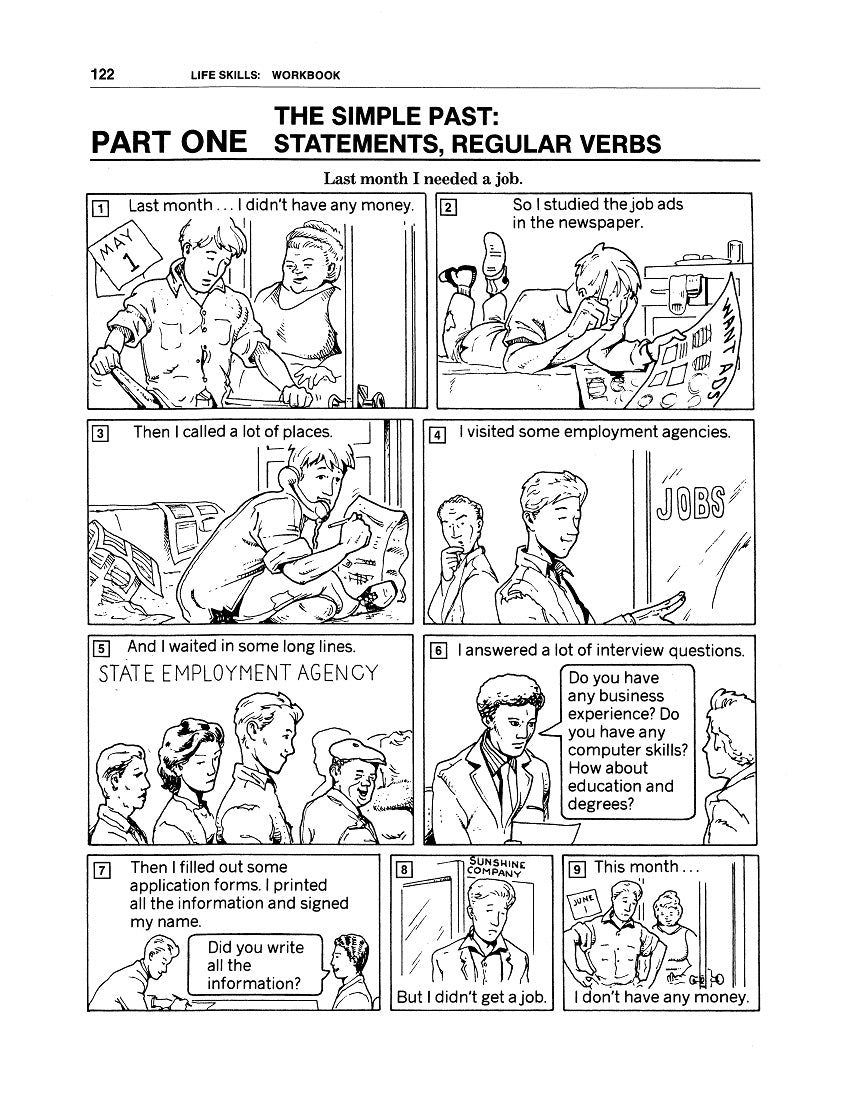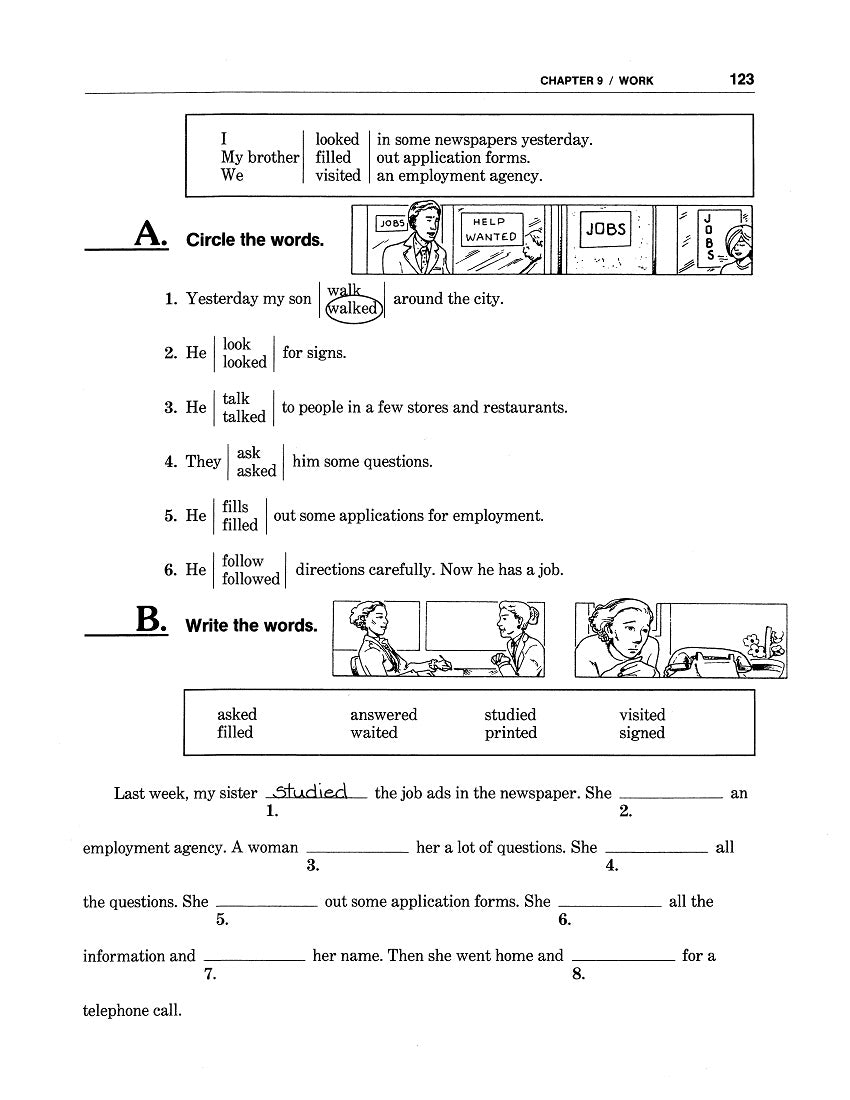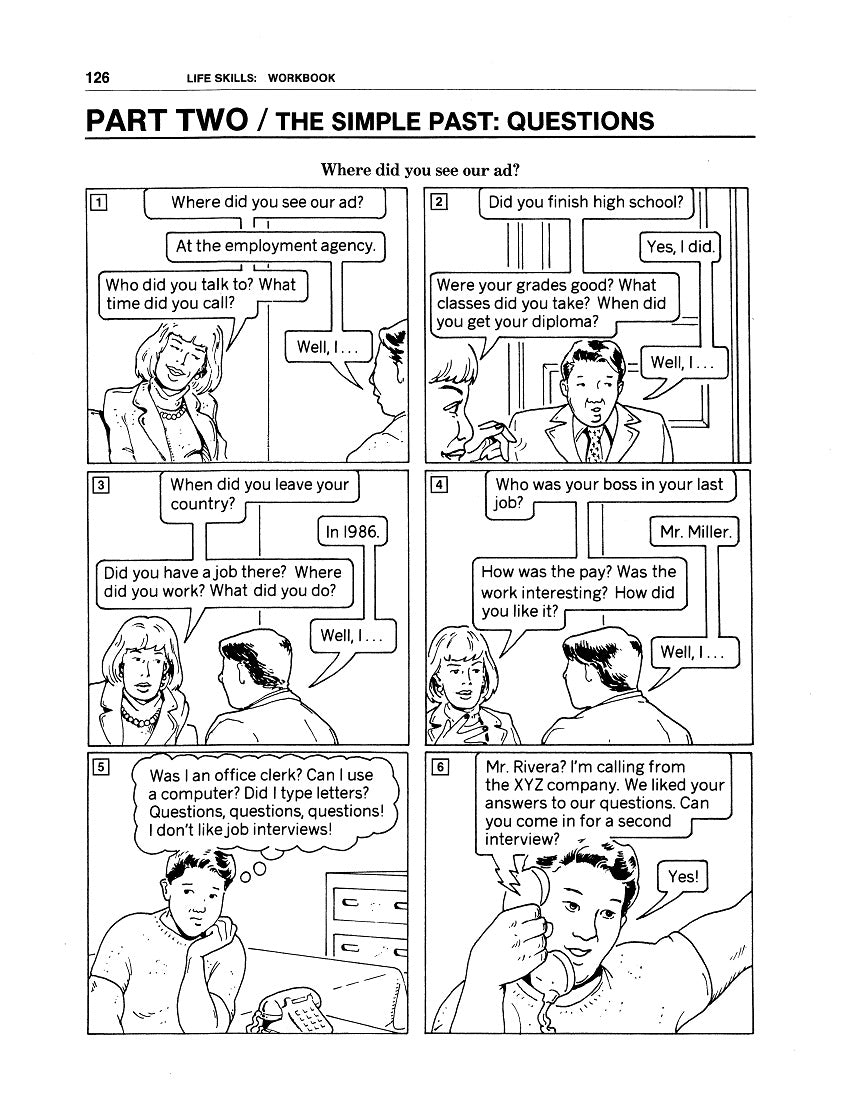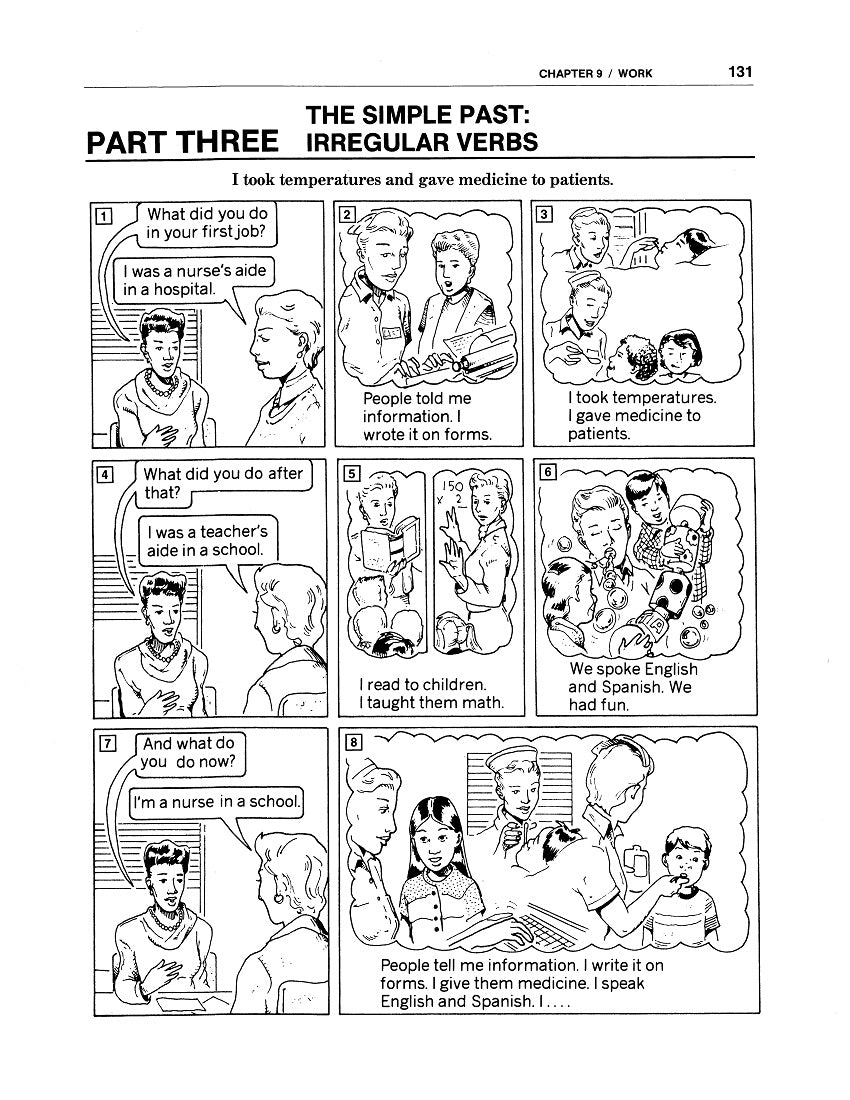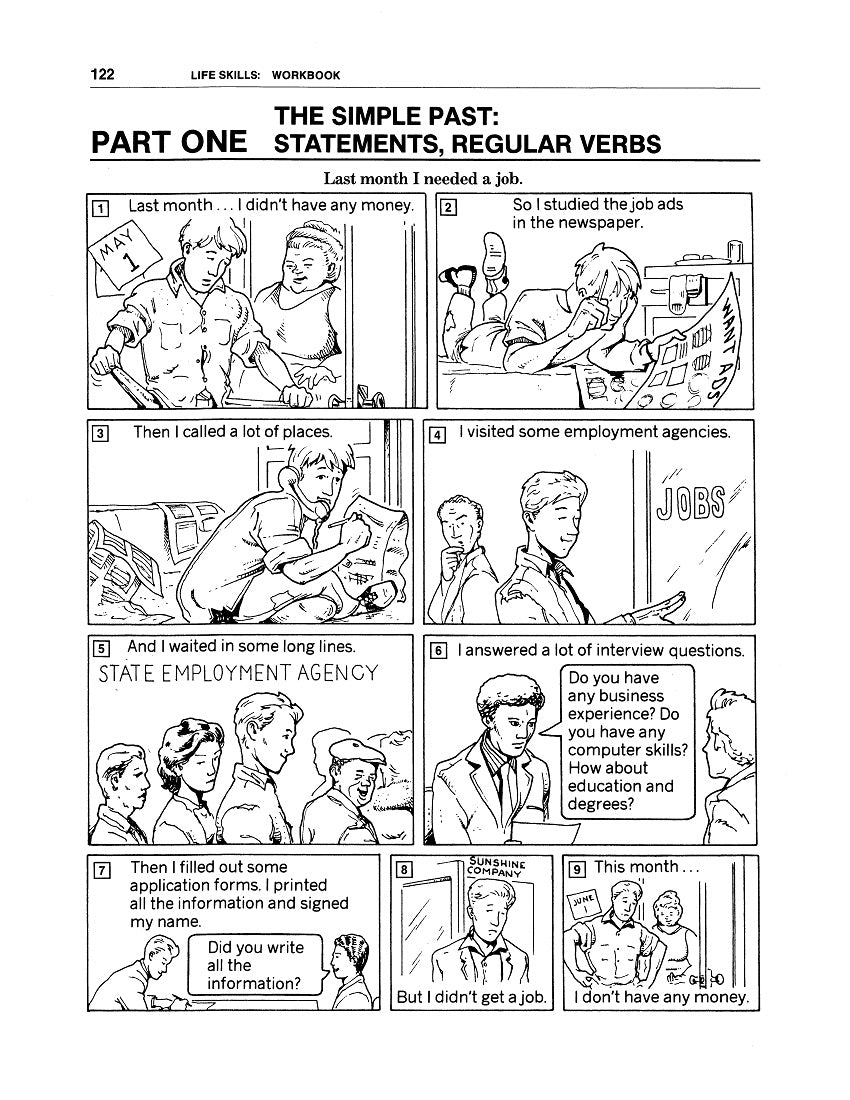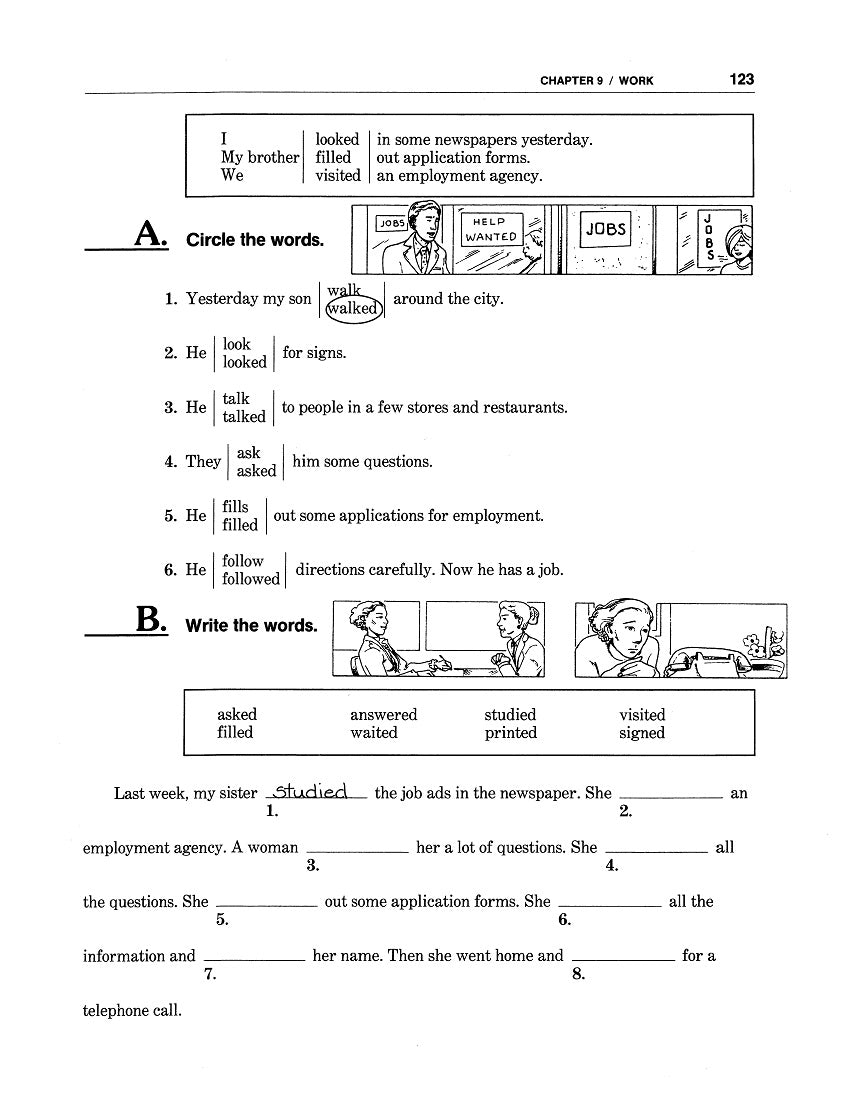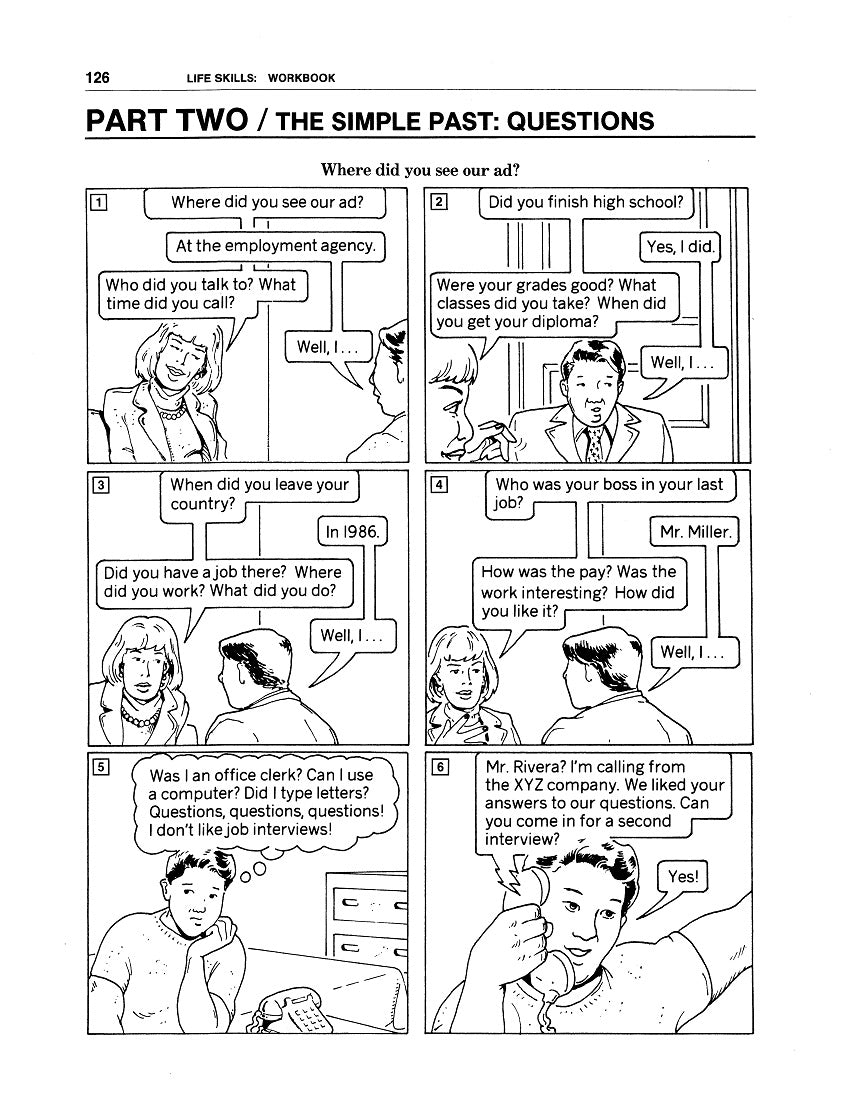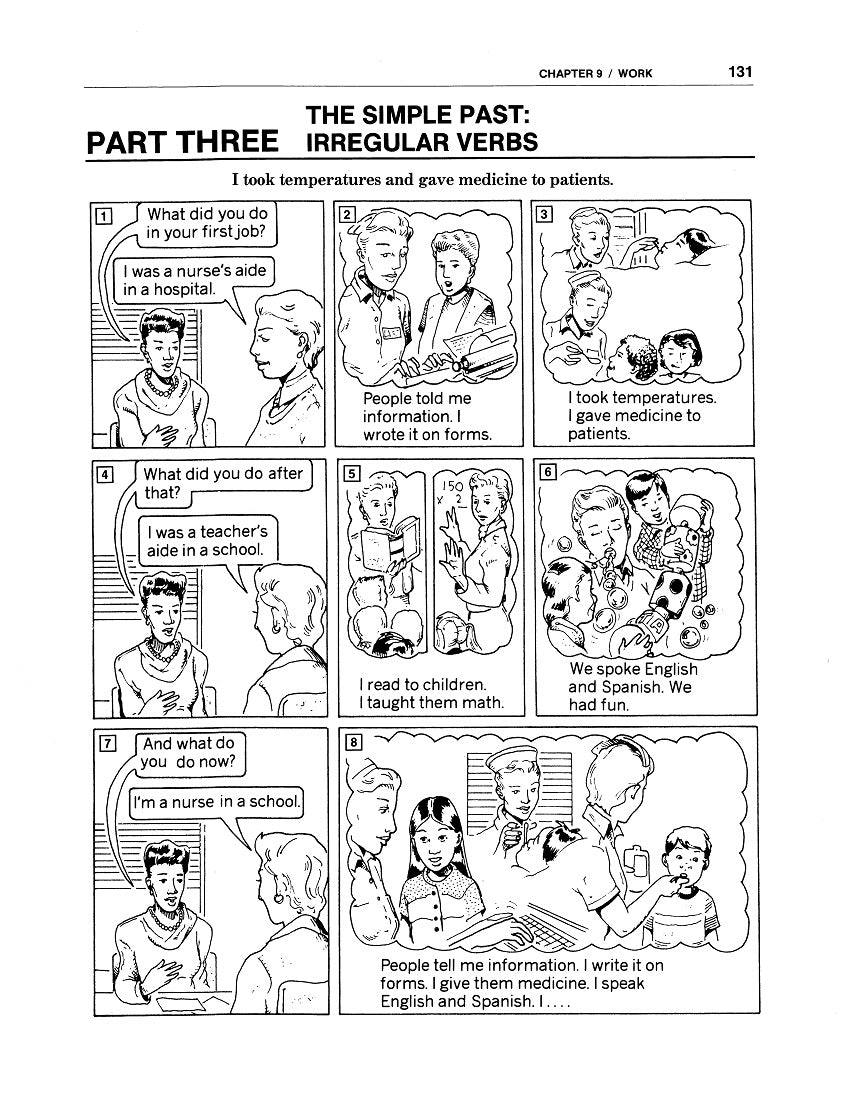1
/
of
4
Work/Life English
D-08.01 Use Regular & Irregular Past Verbs in Statements, Questions & Answers
D-08.01 Use Regular & Irregular Past Verbs in Statements, Questions & Answers
Regular price
$3.00 USD
Regular price
Sale price
$3.00 USD
Unit price
/
per
Parts One, Two, & Three of Chapter 9 (“Work”) of WorkLife English Life Skills Workbook 1, pages 121-134
14 pages
Who It’s For: (Teachers & Helpers of) Novice to Beginning Language Learners
Why It’s Useful: Although some hesitant English speakers “get by” by substituting present verb forms for past ones or by inserting the auxiliary did before base verbs, most language learners prefer to use simple past verbs to label events or actions that occurred before the current time. Even with 3 variants in pronunciation ( /d/, /t/ /id/ ), “regular” verbs ending in -(e)d seem most natural. Then come Negative Statement & Question patterns that include did(n’t). And because they may have heard common words like was, made, went, or saw, even beginners can appreciate instruction in the “irregular past.” (Neophytes often relax when memorizing versatile vocabulary rather than having to “ponder grammatical structure.”) These basic segments offer it all.
What You’ll Do:
[1] With participants, pantomime and read aloud the page 122 Part One: Simple Past: Statements with Regular Verbs Narrative, “Last month I needed a job.” On pages 123-125, with the two Grammar-Pattern Boxes, identify the features of Affirmative & Negative Simple-Past Sentences: Subject (+ didn’t ) + Verb(-[e]d) (+ Object) ( + Rest of Sentence ). Choose past verb forms; finish phrases or sentences.
[2] Act out and read aloud the page 126 Part Two: the Simple Past: Questions Strip Story “Where did you see our ad?” Follow instructions for the grammatical pedagogy and exercises that follow on pages 127-130.
[3] Starting with the Narrative “I took temperatures and gave medicine to patients,” complete Part Three: the Simple Past: Irregular Verbs Questions by following instructions, completing tasks, and checking your responses. Go “Beyond the Text” with spontaneous, practical (job interview?) talk about work that makes use of the targeted grammar patterns.
Couldn't load pickup availability
